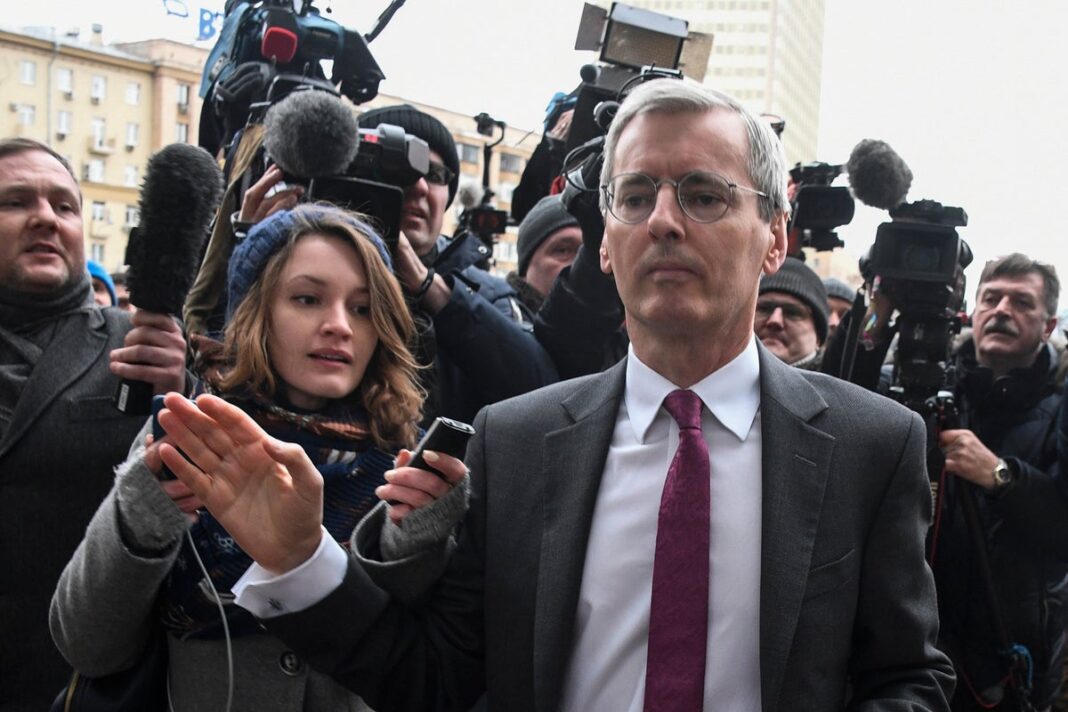LONDON: Britain’s ambassador to Afghanistan, Sir Laurie Bristow, sent repeated warnings of the imminent Taliban threat ahead of the militant group’s takeover of the country, diplomatic cables show.
The revelations prove that the UK was aware of the threat posed by the Taliban, raising questions over the decision to evacuate from the war-torn country.
UK Foreign Secretary Dominic Raab embarked on a holiday to Crete at the time of the takeover, despite the urgent messages sent by Bristow.
A freedom of information request saw the cables relayed to The Times newspaper, which revealed in detail the messages sent by Bristow and his deputy, Alex Pinfield.
A cable sent on June 28 saw the ambassador note that US aerial firepower was the central force deterring the Taliban from entering Afghan cities. Bristow said: “It (The Taliban) is unlikely to do so while it perceives a threat from US airpower.
“From a Taliban perspective, doing so would risk provoking a slowing or a reversal of the US withdrawal, as well as taking significant casualties for little gain.
“It is more likely that the Taliban will wait until it believes international military withdrawal is irreversible before escalating its campaign.”
But US President Joe Biden, less than a week later, on July 2, ordered a military withdrawal from Bagram Airfield in eastern Afghanistan.
A month later, on Aug. 2, the effects of the declining US presence in the country were seen in a cable sent by Bristow, where he said: “The gloves are off … we are entering a new, dangerous phase of the conflict.”
When the Taliban appeared prepared to stage an assault on their first city, he added, warning: “If that happens, the impact on already fragile political unity, military, and public confidence and sentiment will be significant.
“The UK legacy in Helmand may add fuel to the public debate in the UK over relocating those who have worked for us during the last two decades in Afghanistan.”
The ambassador also warned of the threat posed to the capital, Kabul, which until the takeover was largely insulated from the conflict raging elsewhere in the country.
In response to the revelations, a government source said: “While the situation in Afghanistan was clearly deteriorating, the Taliban’s final advance on Kabul was significantly faster than anyone predicted.
“Despite an extremely difficult situation on the ground, months of intensive cross-government planning allowed us to deliver the biggest evacuation in living memory, bringing 15,000 people, including 7,000 British nationals and their families, to safety.”
Another source defended the government’s decisions, saying that Bristow’s cables were only “a fraction of the advice going to ministers.”
As a result of The Times report, Conservative MP Iain Duncan Smith, himself a former army officer, demanded that the UK Foreign Office reveal the full extent of the decisions it made in light of Bristow’s warnings.
Smith said: “I’m glad the ambassador was telling the Foreign Office but the question now is what did Raab do and did anybody in the government say to the US ‘this is going to be a disaster if you close Bagram?’
“Did we, at any stage, say to them ‘Do not close Bagram?'”




